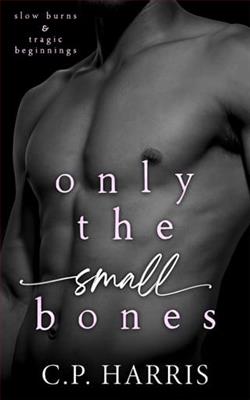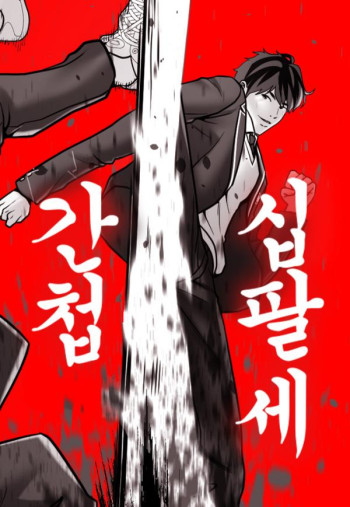
Only the Small Bones
by C.P. Harris
“What makes him so special?”
“He reminds me of someone I once knew…”
As the founder of Freedom Fighters, famed music composer, William Mayes, is often the first port of call when the FBI needs assistance with human trafficking victims.
After receiving such a call one night, William abandons everything to catch the next flight home. Arriving at Manhattan Memorial, he finds a beautiful young man restrained to a gurney. His eyes are wild with fear, and blood stains his skin. No one has been successful in getting him to speak.
When even he can’t get the young man to cooperate, William does something he may later come to regret—he extends an invite to his home.
The young man is non-verbal, angry, and at times openly hateful. All of which gives him control over William’s emotions.
William slowly begins to spiral from his own struggles with his tormented past. His nightmares return, sleep becomes a lost cause, and the dark voices in his head are out for blood.
Amid their co-dependent isolation, William’s feelings evolve. Lines are blurred, and then crossed altogether as they start down a path riddled with secrets and lies of omission.
The only thing that can set them both free is the truth. But maybe some things are better left buried. Because if the ugliest parts of William are ever unearthed, no one will be spared.
.
Read
Only the Small Bones on http://kissnovel.net
Martial Peak Reviews
C.P. Harris's Only the Small Bones is a gripping exploration of trauma, redemption, and the complex web of human emotions. The novel delves into the dark and often unsettling world of human trafficking, while simultaneously weaving a tale of personal struggle and unexpected connections. At its core, the book is a profound examination of how past experiences shape our present and the lengths to which we go to find solace and understanding.
The story centers around William Mayes, a renowned music composer and the founder of Freedom Fighters, an organization dedicated to assisting victims of human trafficking. William is a character of depth and complexity, haunted by his own past while striving to make a difference in the world. His involvement with the FBI in rescuing trafficking victims sets the stage for the novel's central conflict. When he encounters a young man at Manhattan Memorial, restrained and terrified, William's life takes an unexpected turn.
The young man, whose name remains a mystery for a significant portion of the book, is a compelling character in his own right. His non-verbal nature and palpable anger create an aura of intrigue and tension. Harris skillfully portrays the young man's internal struggle, making readers empathize with his plight even as he remains an enigma. The dynamic between William and the young man is the heart of the novel, driving the narrative forward with its intensity and unpredictability.
One of the novel's most striking themes is the exploration of trauma and its lingering effects. Both William and the young man are haunted by their pasts, and Harris does an exceptional job of illustrating how these experiences shape their present actions and emotions. The novel delves into the psychological toll of trauma, depicting the nightmares, anxiety, and self-destructive tendencies that plague both characters. This exploration is both poignant and unsettling, offering readers a raw and unfiltered look at the human psyche.
Harris's writing is both evocative and immersive, drawing readers into the world of the characters with vivid descriptions and emotional depth. The prose is beautifully crafted, capturing the nuances of the characters' emotions and the tension that permeates their interactions. The novel's pacing is deliberate, allowing for a gradual unraveling of the characters' secrets and the development of their relationship.
The relationship between William and the young man is a complex and multifaceted one, marked by a blend of dependency, attraction, and mutual understanding. As they navigate their co-dependent isolation, their feelings evolve in unexpected ways, blurring the lines between friendship and something more. Harris handles this evolution with sensitivity and nuance, avoiding clichés and instead offering a realistic portrayal of how trauma can both divide and unite individuals.
One of the novel's strengths is its ability to keep readers on edge, constantly questioning the characters' motives and the truth behind their actions. The theme of secrets and lies of omission is woven throughout the narrative, creating an atmosphere of suspense and intrigue. As the story unfolds, readers are left to ponder the consequences of uncovering the truth and whether some things are indeed better left buried.
In comparison to other works in the genre, Only the Small Bones stands out for its focus on character development and psychological depth. While it shares thematic similarities with novels like Gillian Flynn's Sharp Objects and Stieg Larsson's The Girl with the Dragon Tattoo, Harris's work is distinguished by its intimate portrayal of the characters' inner worlds. The novel's emphasis on the emotional and psychological aspects of trauma sets it apart, offering a fresh perspective on familiar themes.
Overall, Only the Small Bones is a compelling and thought-provoking read that will resonate with fans of psychological thrillers and character-driven narratives. Harris has crafted a story that is both haunting and hopeful, exploring the darkest corners of the human experience while offering a glimmer of redemption. The novel's impact lingers long after the final page, leaving readers to reflect on the complexities of human nature and the power of connection.
In conclusion, C.P. Harris has delivered a masterful work that challenges readers to confront the uncomfortable truths of trauma and the resilience of the human spirit. Only the Small Bones is a testament to the power of storytelling, offering a poignant and unforgettable journey into the depths of the human soul.
























Reviews 0
Post a Reviews: